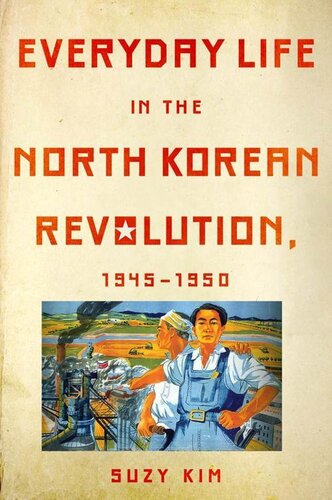

Most ebook files are in PDF format, so you can easily read them using various software such as Foxit Reader or directly on the Google Chrome browser.
Some ebook files are released by publishers in other formats such as .awz, .mobi, .epub, .fb2, etc. You may need to install specific software to read these formats on mobile/PC, such as Calibre.
Please read the tutorial at this link: https://ebookbell.com/faq
We offer FREE conversion to the popular formats you request; however, this may take some time. Therefore, right after payment, please email us, and we will try to provide the service as quickly as possible.
For some exceptional file formats or broken links (if any), please refrain from opening any disputes. Instead, email us first, and we will try to assist within a maximum of 6 hours.
EbookBell Team

4.1
100 reviewsDuring
the founding of North Korea, competing visions of an ideal modern state
proliferated. Independence and democracy were touted by all, but plans
for the future of North Korea differed in their ideas about how everyday
life should be organized. Daily life came under scrutiny as the primary
arena for social change in public and private life. In Everyday Life in the North Korean Revolution, 1945–1950,
Kim examines the revolutionary events that shaped people's lives in the
development of the Democratic People's Republic of Korea. By shifting
the historical focus from the state and the Great Leader to how
villagers experienced social revolution, Kim offers new insights into
why North Korea insists on setting its own course.Kim’s innovative use
of documents seized by U.S. military forces during the Korean War and
now stored in the National Archives—personnel files, autobiographies,
minutes of organizational meetings, educational materials, women’s
magazines, and court documents—together with oral histories allows her
to present the first social history of North Korea during its formative
years. In an account that makes clear the leading role of women in these
efforts, Kim examines how villagers experienced, understood, and later
remembered such events as the first land reform and modern elections in
Korea’s history, as well as practices in literacy schools, communal
halls, mass organizations, and study sessions that transformed daily
routine.